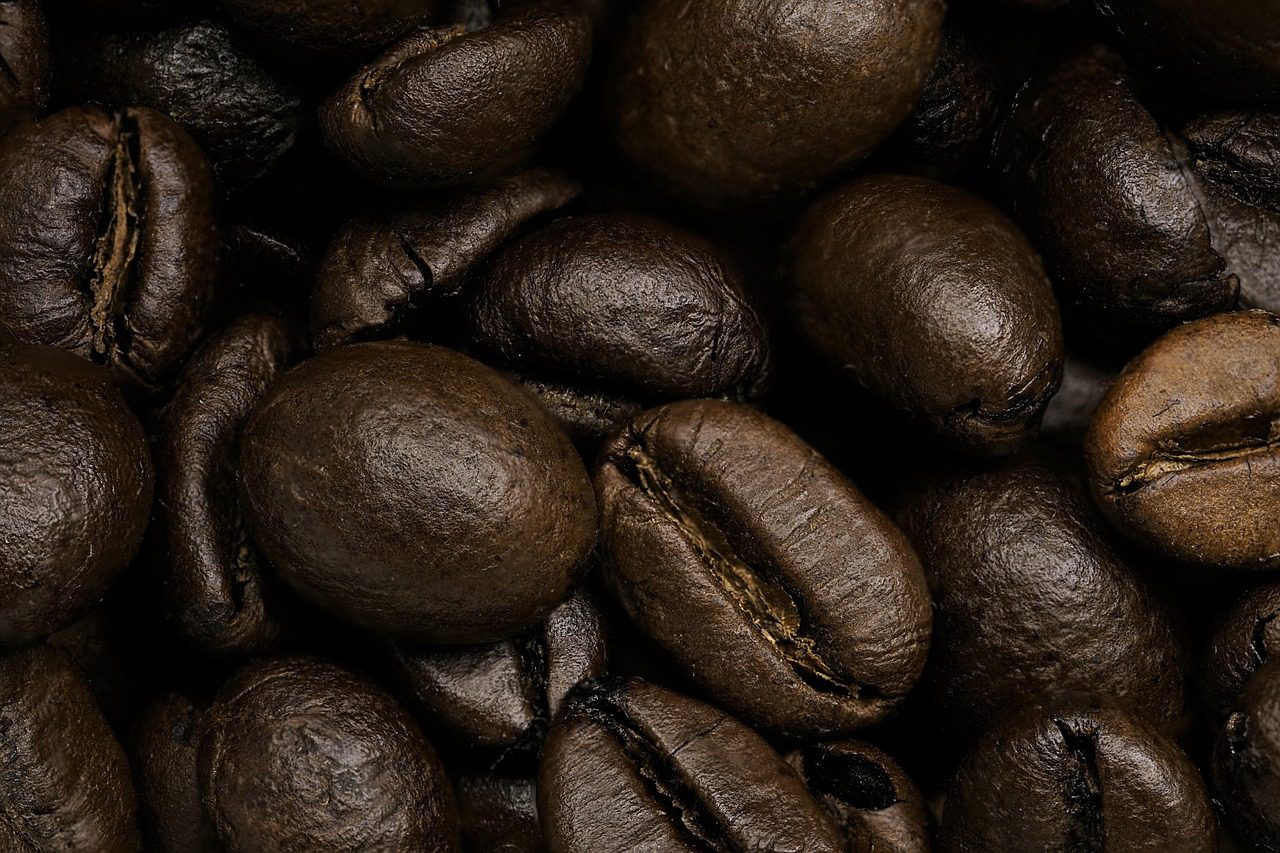Freshness Facts for Espresso, Cold Brew, and Your Best Coffee Experience
Ever wondered if your coffee beans last forever or if they’re quietly going stale in the back of your pantry?
Here’s the quick answer: coffee beans do expire and, after a while, lose both flavor and aroma.
Keeping your beans fresh is key if you want the best coffee, whether you’re sipping on an espresso, enjoying a creamy latte, or brewing a bold cold brew at home.
The freshness of your coffee beans has a big impact on taste, quality, and even the safety of your cup.
In this guide, you’ll find out how long coffee beans last, how to store them to extend shelf life, what signs to watch out for, and how to make sure your coffee maker or favorite decaf coffee still delivers rich flavor and perks.
You’ll also get simple tips for keeping your options, from cappuccino to Java Burn, as healthy as they are delicious.
Key Takeaways:
- Coffee beans do expire, losing taste and aroma over time.
- Bean freshness matters for espresso, cappuccino, latte, and cold brew.
- Proper storage helps keep beans safe and flavorful longer.
- You’ll learn simple ways to spot old beans and keep your coffee habits healthy.
- Coffee makers and supplements like Java Burn can support a balanced routine when you use them with care.
- Easy advice and fun examples will make it simple for everyone to enjoy the best coffee experience.
How Long Do Coffee Beans Last?
Curious how long your coffee beans can actually hold onto their flavor and aroma?
The answer can make all the difference between a delicious cup of espresso, a rich cappuccino, or a flat, disappointing brew.
When you’re after the best coffee experience—whether you prefer whole beans, ground, or decaf coffee—it pays to know both the signs of expired beans and the shelf life differences that matter for your daily ritual.
Signs Your Coffee Beans Have Expired: Smell, Taste, Appearance, Texture
 Photo by Marek Kupiec
Photo by Marek Kupiec
It’s tempting to think coffee beans might last forever, especially when they smell amazing after brewing.
But like all natural foods, they eventually reach a point where they just aren’t as good or safe as before.
Here are some of the most common signs your coffee beans have expired:
- Smell: Fresh beans give off vibrant, rich, and sometimes nutty or chocolatey scents. When they’re past their prime, you might notice a musty, dull, or even rancid odor. If the smell makes you wrinkle your nose or seems off, it’s time to toss them. Learn more about identifying off smells in coffee beans.
- Taste: Old beans make brewed coffee taste flat, bitter, or stale instead of smooth and lively. If your espresso or latte tastes weak or reminds you of cardboard, it’s probably because the beans are too old. Find expert advice on how stale beans impact taste.
- Appearance: Fresh beans have a slightly shiny surface from natural oils. When beans get old, they often look dull or unusually dry. Sometimes they can even feel sticky if the oils have gone bad.
- Texture: Old beans break or crumble too easily between your fingers and may feel overly hard or brittle.
- Impact on Drinks: Using expired beans means your morning cappuccino or cold brew will lose the punch and complexity you crave. Even a powerful coffee maker can’t fix the taste of stale beans, and your decaf coffee will be just as disappointing.
If you ever brew a pot hoping for the best coffee and end up with a “blah” cup, the beans are usually to blame.
Keeping these sensory cues in mind helps you avoid wasting time and ingredients on coffee that just won’t satisfy.
Whole Beans vs. Ground Coffee: Shelf Life Differences
Whole beans and pre-ground coffee do not age the same way.
If you want to stretch your coffee’s freshness, it’s smart to know which option stays at its best the longest.
- Whole Beans: When you keep whole beans sealed and stored in a cool, dry place, they can last up to 12 months unopened. Once opened, they’re happiest (and tastiest) for about 2-4 weeks before flavor and aroma start dropping off. The natural shell of the bean gives protection against air and moisture, which helps them stay fresher longer. See how long sealed bags of beans can last.
- Ground Coffee: Ground coffee is convenient but loses freshness faster. Once ground, the beans’ surface area increases, letting in more air, which steals away both the scent and flavor in a hurry. Ground coffee is usually best for about 1-2 weeks once opened, and a few months if unopened and tightly sealed.
Here’s a quick comparison of shelf life:
| Coffee Type | Unopened Shelf Life | Opened Shelf Life |
|---|---|---|
| Whole Beans | Up to 12 months | 2-4 weeks |
| Ground Coffee | Several months | 1-2 weeks |
Why do whole beans stay fresh longer?
The outside protects the delicate oils and flavors inside the bean from oxygen, moisture, and light.
Once those beans are ground, there’s nowhere to hide—aroma and taste escape quickly.
For anyone seeking the best coffee experience—especially for espresso or specialty drinks like latte or cold brew—grinding beans just before brewing guarantees peak flavor.
Using freshly roasted beans also boosts the healthful antioxidants and satisfying complexity that make your cup memorable.
Looking for tips on how to get that coffee shop taste at home? Storing the right amount of beans and grinding them only when needed is a great first step.
You can also discover more ways to brew healthier, better coffee and enjoy all the perks your beans have to offer.
Factors That Impact Coffee Bean Freshness
When do coffee beans expire? The answer depends on a few things, but storage plays a huge role.
Even the fanciest espresso machine or best cappuccino recipe can’t save stale beans. Air, moisture, light, and heat are the top enemies of fresh coffee flavor.
Small changes in how you store your beans can keep that “just-roasted” taste alive, making each cup you brew a lot more rewarding.
Below, you’ll find some best practices for storage along with how bean freshness can shape your favorite drinks—whether that’s a creamy latte, a refreshing cold brew, or your daily decaf coffee.
Best Practices for Storing Coffee Beans
 Photo by Quang Nguyen Vinh
Photo by Quang Nguyen Vinh
Keeping your coffee beans fresher for longer isn’t hard, but it does mean treating them a bit like treasure.
Whether you’re gearing up for your morning espresso or prepping cold brew ahead of time, how you store your beans will shape the final flavor and aroma in your cup.
It’s tempting to pop your coffee into the fridge or freezer, but this can actually do more harm than good.
Beans are like little sponges and can soak up the odors and moisture from your fridge, which ruins their taste.
The real secret is to keep beans as shielded from the outside world as possible.
Here are some simple ways to make the most of your beans:
- Use airtight containers. Storing beans in a vacuum-sealed or tightly closed jar limits their exposure to oxygen, helping preserve their natural oils and flavor.
- Store in a cool, dark, and dry place. A cupboard away from your oven, stove, or sunlight is ideal. Temperature swings and light both speed up the loss of flavor.
- Keep beans away from moisture. Humidity is a fast track to stale coffee or even mold. Always dry your container thoroughly before filling it.
- Don’t refrigerate or freeze open bags. While freezing unopened beans can work short-term, once opened, the cycle of condensation when taking them in and out can spoil the beans.
- Buy only what you need. Beans are at their best right after roasting and for a few weeks after. Get enough for a couple of weeks at a time, not for months.
- Leave beans whole until use. Grind right before brewing for the best coffee in every cup.
If you want more quick tricks for keeping your coffee beans in top shape and saving time during busy mornings, check out these Time-saving coffee tips.
Small habits, like using insulated containers or prepping your beans the night before, can make a real difference.
How Storage Affects Different Coffee Drinks
The freshness of your beans doesn’t just affect plain coffee. It touches everything you brew, from bold espresso shots to smooth cold brew.
Each style of coffee responds a bit differently to changes in bean freshness.
Let’s look at how storage methods play out across your favorite drinks:
- Espresso: Espresso relies on the full punch of fresh beans for thick, golden crema and deep, complex taste. Stale beans create thin crema and a bitter or sour shot, leaving your latte or cappuccino feeling flat. Using beans that are just past their prime? Expect inconsistent pulls and underwhelming drinks.
- Cold Brew: Cold brew needs beans with vibrant flavors to avoid tasting watery or bland. This method uses long steeping times, which means any staleness only gets stronger as the hours tick by. Fresh, well-stored beans give cold brew its famous chocolatey smoothness and mellow strength.
- Decaf Coffee: Decaf tends to lose flavor a little faster than regular beans because the decaffeination process is an extra step. That means careful storage is even more important for those who want their decaf to taste close to a full-caf cup.
- Other Drinks (like Cappuccino and Latte): Milk-based drinks can sometimes mask slightly older beans, but even the most creamy latte loses its spark if the base shot is dull. Fresh beans deliver a nutty, chocolatey essence that blends perfectly with milk.
Coffee makers don’t have the power to bring stale beans back to life.
The easiest way to enjoy toasty, aromatic drinks is to pay attention to storage right from day one.
Want to experiment with different types of beans for your cappuccino or latte? Learn more about storing single origin beans with care in this helpful guide.
Key takeaways for every coffee lover:
- Store beans in airtight containers, at room temperature, away from light and heat.
- Avoid the fridge and freezer for opened beans.
- Only grind what you need right before brewing.
- Freshness is just as important for decaf and cold brew as it is for robust espresso or a silky latte.
- The best storage habits give you the best coffee, every single time.
Keep these tips in mind and you’ll never have to wonder again, “When do coffee beans expire?”
Fresh beans mean better mornings, happier sips, and coffee that always lives up to the hype.
Safe Use and Health Aspects of Expired Coffee Beans
When it comes to coffee, freshness really is a big deal. You might look at an old bag of beans and wonder, “Can I still use these for my morning brew?”
Understanding the safe use and health risks of expired coffee beans will help you enjoy your best coffee while avoiding unpleasant surprises.
Alongside the basics of safety and flavor, it’s smart to look at how coffee habits and supplements like Java Burn shape wellness every single day.
Can You Drink Coffee Made from Expired Beans?
 Photo by cottonbro studio
Photo by cottonbro studio
Let’s get the big question answered first: most expired coffee beans aren’t dangerous if they’ve been kept clean and dry.
But the answer to “when do coffee beans expire” is about much more than just safety. Here’s what you need to know:
- Health Risks: Properly stored coffee beans rarely grow harmful mold or bacteria, and dry beans seldom “go bad” like milk or bread. If beans smell musty, look moldy, or have gotten wet, it’s safest to toss them. Consuming moldy or damp beans can expose you to mycotoxins, which aren’t good for health.
- Taste Loss: As coffee beans lose freshness, natural oils break down and the taste fades. Old beans brew up weak, bitter, or even slightly sour coffee. Your favorite espresso or latte might taste flat or lack that aromatic punch you love. The drink won’t be satisfying, and you’ll likely reach for something else.
- When to Avoid: Skip using beans that have an odd smell, visible mold, or a greasy texture. If in doubt, trust your senses—there’s no point in risking your best coffee experience for stale, suspect beans.
Best practices for a healthy coffee routine include:
- Always store beans in a sealed, airtight container, away from light and moisture.
- Only buy what you can use up in a few weeks to keep things fresh.
- If your beans are past their prime but you still want to use them, consider using them for cold brew or composting instead of brewing your morning cup. The longer brew time for cold brew can sometimes mask slight staleness.
- Brew with clean, filtered water and a well-maintained coffee maker to avoid contamination.
For more perspective on how long coffee beans can be used and safety details, you can check out this clear guide on how long does coffee last and storage tips and this helpful discussion on using expired whole beans.
Combining Coffee and Supplements for Health Benefits
Coffee beans do more than wake you up. When you blend coffee with healthy habits and safe supplements, the benefits grow.
Products like Java Burn and similar supplement blends promise to boost your energy, fuel your morning routine, and support wellness if you use them carefully.
Here’s how you can fit these into your day and make the most of every sip:
- Understand Your Ingredients: Look for coffee supplements that are transparent about what’s inside. Things like green tea extract, L-theanine, or key vitamins are common. Avoid products with hidden sugars or fillers.
- Keep It Simple: Brew your espresso, cappuccino, or cold brew as you normally would, then add Java Burn or your chosen supplement as directed. Don’t mix several supplements at once to avoid side effects.
- Pair With Healthy Habits: Drinking coffee alongside a balanced diet and regular movement gives you the most long-term results. Supplements work best as add-ons, not as quick fixes.
- Stay Hydrated: Coffee and supplements can be dehydrating. Always drink water throughout your day.
- Listen to Your Body: If you notice jitters or discomfort, scale back or take a break. Wellness starts with simple, steady habits, not extremes.
For more on getting healthy with coffee and supplements, especially if you’re interested in weight goals or boosting energy, check out these proven coffee and weight loss tips.
Key tips for maximizing health:
- Choose the freshest beans for every brew.
- Store beans smartly to protect their flavor and your health.
- Add supplements mindfully—follow directions on serving size and timing.
- Combine coffee drinking with healthy meals, plenty of water, and smart routines.
Enjoying your best coffee isn’t just about taste or how fancy your coffee maker looks on the counter.
It’s about balancing freshness, safety, and good choices for a happier, healthier day. T
he right beans and smart supplement use help you sip with confidence, whether it’s espresso, decaf coffee, or a cozy cappuccino.
Key Takeaways: Expiration, Freshness, and Wellness
The question, “when do coffee beans expire?” cuts right to the heart of every coffee lover’s concerns about taste and health.
Paying attention to expiration dates and freshness isn’t just about getting the best coffee flavor—it’s also about feeling good with each cup, whether it’s a bold espresso, a creamy latte, or a refreshing cold brew.
Let’s break down the key points you should remember and see why freshness is such a big deal for both your daily routine and long-term wellness.
When Do Coffee Beans Expire? Simple Facts
 Photo by Kelly
Photo by Kelly
Coffee beans don’t last forever, even though dry foods might seem like they could.
Here’s the bottom line:
- Whole beans stay at their best for about 2 to 4 weeks after the bag is opened. If the bag is sealed, they can last several months.
- Ground coffee loses freshness much faster—often in just 1 to 2 weeks after opening.
- Stale or expired beans won’t harm you if they stay dry, but they won’t make the best coffee. They lose those rich aromas and flavors that make your espresso or cappuccino stand out.
- The right storage keeps beans at peak flavor longer. Store them airtight, away from light and moisture, to help slow down the expiration clock.
If you’re curious about more scientific details on shelf life, check out how long coffee beans last and storage advice. You’ll see why freshness truly matters in every brew.
Why Freshness Equals Flavor and Wellness
The difference between a great latte and a flat-tasting cup often comes down to two things: bean freshness and how you care for your beans once you bring them home.
Freshness isn’t just about taste—there’s a wellness bonus too.
- Flavor Peak: You’ll get bold taste, balanced acidity, and those delicious café-style aromas using fresh beans, not stale ones.
- Nutrient Content: Antioxidants and natural oils that may benefit health are most abundant in fresh, well-stored beans.
- Digestive Comfort: Stale coffee can cause some people mild stomach upset or acid aftertaste. Keeping your coffee beans fresh can make every cup easier to enjoy.
Need more tips on coffee and health?
Explore how certain coffees and habits might affect your body and how to spot the “good stuff” in a blend at Coffee and wellness essentials.
Practical Takeaways for Coffee Lovers
Getting the most out of your routine (and every cup) means keeping a few easy points in mind:
- Label Date: Always check the roast date on coffee bags for the freshest experience, especially if you love espresso or cold brew.
- Smell and Taste Test: Rely on your senses. Beans should be fragrant and taste lively. If your latte or decaf coffee tastes bland, it’s a sign the beans need replacing.
- Smart Storage: Use a sealed container and keep beans in a dark, cool spot. Even a basic airtight jar can do wonders. Curious about how the pros keep their beans crisp? Find expert tips on how to keep coffee beans fresher, longer.
Take a look at this recap of the top action steps:
- Buy only what you’ll use in a couple of weeks—that’s the sweet spot for freshness.
- Grind right before brewing for maximum taste and aroma.
- Don’t store beans in the fridge once opened—the moisture can ruin them.
- Try new coffee makers or brewing tools, but remember: even the best equipment can’t save stale beans.
If you want to see how freshness plays into making the perfect cup, see our hands-on advice on choosing equipment for your routine and find the coffee gear that suits you.
Wellness Benefits: More Than Just a Morning Boost
Coffee can give you more than a kickstart in the morning.
When beans are well-kept and brewed fresh, you also get the little perks that come from something as simple as a great cup. Here’s what to keep in mind:
- Mood and Energy: Good coffee brings energy and focus, but using something like Java Burn alongside your brew may help with sustained support for those aiming to boost metabolism or keep energy levels steady. Learn how to use Java Burn for wellness.
- Healthy Habits: Enjoying coffee (from rich espresso to easy cold brew) sets the stage for morning rituals, moments to relax, or helpful routines for the day.
Keep in mind that freshness matters even with decaf coffee.
The healthier antioxidants and great taste you want are tied to how you treat your beans at home.
Key takeaways for getting your best coffee and staying well:
- Buy fresh, store smart, and trust your senses.
- Use good equipment, but focus on freshness first.
- Pair coffee with smart habits (hydration, good sleep).
- Consider safe supplements like Java Burn for an extra wellness edge.
Staying on top of when coffee beans expire and how to keep them fresh is one of the simplest ways to lift your routine from “fine” to “fantastic,” whether you’re brewing for yourself or sharing with friends and family.
Freshness isn’t just a detail—it’s the key to a happier, healthier coffee life.
FAQs: Coffee Beans, Expiration, and Healthy Coffee Habits
Wondering when do coffee beans expire?
You’re not alone! Many coffee lovers have questions about storing beans, making the best coffee, and keeping their daily cup as healthy as possible. This section answers the most common coffee, freshness, and wellness questions in a practical, friendly way.
Whether you use a classic coffee maker or love cold brew, you’ll find advice to keep your coffee delicious and your habits on track.
 Photo by Lukas
Photo by Lukas
1. When Do Coffee Beans Expire?
Coffee beans are at their best for about 2 to 4 weeks once you open the bag. For unopened beans, you can usually count on several months of freshness, especially if stored in a cool, dark, airtight container. Ground coffee loses quality faster—often just 1 to 2 weeks after opening.
Key freshness signs to watch for:
- A rich, inviting smell and oily surface
- A lively, pleasant flavor in your cup
- No stale, sour, or musty aromas
If beans lose their punch or smell odd, it’s time for a fresh bag. Old beans won’t make dangerous coffee if kept dry, but the taste and aroma won’t delight you.
For more advice on keeping beans fresher for longer, check out this top guide on how to store coffee beans.
2. What’s the Best Way to Store Coffee Beans?
How you store your beans really matters. Air, heat, moisture, and light are the biggest threats to fresh flavor.
Think of your beans like a special treat—protect them for the best coffee every morning.
Here are a few easy storage tips:
- Use an airtight container, not just a bag clip.
- Keep beans in a cool, dark spot (pantry or cupboard, not the fridge).
- Avoid sunlight, heat, and humidity.
Avoid freezing opened bags. The extra moisture and temperature changes can cause beans to lose flavor fast.
If you want more in-depth storage ideas, here’s a handy article on keeping coffee beans fresh longer.
3. Can I Still Use Coffee Beans Past the Expiration Date?
If your beans look dry, smell okay, and haven’t gotten damp or moldy, you can use them.
The taste just won’t pop like fresh beans. Expired beans make coffee that’s flat and missing sweetness—a big deal if you love espresso, latte, or cappuccino.
For the most flavor, stick with beans that are inside their peak freshness window.
If you’re curious about creative ways to use old beans, consider brewing cold brew or even using them for homemade coffee scrubs.
4. How Do Old Coffee Beans Affect Drinks Like Espresso and Cold Brew?
The fresher your beans, the better your espresso, cappuccino, or cold brew will taste.
Espresso needs fresh beans for a golden crema and rich flavor. Stale or old beans often make shots that are thin, sour, and dull. For cold brew, older beans can give you a lifeless drink.
Remember, even the best coffee maker can’t prevent stale beans from brewing up bland coffee.
For extra tips, visit our guide to choosing the right coffee equipment.
5. Is Decaf Coffee Affected by Storage the Same Way?
Yes, decaf coffee is just as sensitive to air, light, and moisture. Since decaf beans go through extra handling, they may lose their flavor a bit quicker.
Store your decaf the same way as regular coffee to get smooth, tasty drinks every time. Want more on choosing or storing decaf?
Dive into our healthy coffee recipes for inspiration.
6. Can Coffee and Supplements Like Java Burn Support My Wellness?
Coffee offers antioxidants, boosts focus, and can bring small energy perks. Java Burn and similar supplements are popular for their metabolism support.
If you use a supplement, follow the label, stick to one at a time, and focus on fresh beans for every cup.
See how Java Burn fits into a healthy coffee routine at our wellness page.
7. What Equipment Should I Use for the Best Cup?
Making the best coffee doesn’t mean buying expensive gear. Use a basic coffee maker, French press, or pour-over cone to get great flavor.
Pick what fits your style and space! For next-level results, grind beans just before brewing and store them well.
Explore our top picks for budget-friendly coffee makers and see what might work for you.
Quick Takeaways from This Article
- Coffee beans don’t last forever; 2 to 4 weeks is best after opening.
- Store beans airtight, away from heat and light to keep flavor longer.
- Use fresh beans for top-tier espresso, latte, cappuccino, and cold brew.
- Both regular and decaf coffee need the same careful storage.
- Safe, smart use of supplements can fit into your healthy routine.
- No need to splurge on fancy gear—good habits and fresh beans matter most.
- Listen to your senses. If something smells off, it probably is!
Coffee and Your Healthy Life
Coffee, when enjoyed with care and smart habits, fits right into a healthy lifestyle.
Fresh beans, mindful brewing, and balanced use of products like Java Burn mean each cup can lift your energy and put a smile on your face.
Sip happy, stay curious, and enjoy every moment your coffee brings!
Conclusion
When do coffee beans expire? The answer is simple: beans start to lose their best flavor a few weeks after opening, but they don’t turn dangerous if kept dry and clean.
Stale beans won’t give you the bold taste, sweet notes, or satisfying aroma that make a great espresso, latte, cappuccino, or cold brew. Your best coffee happens when you pick fresh beans, store them well, and trust your senses.
Decaf coffee and specialty blends need the same care to keep every cup tasting lively.
Coffee fits naturally into a healthy lifestyle. When you brew with fresh beans and use smart equipment, you get more energy and better flavor.
Supplements like Java Burn, used with care, can add a little boost and support your daily routine.
Coffee is about more than a quick pick-me-up—it’s a daily ritual that can brighten your mood and keep you feeling your best.
Thank you for spending time here at Brew Your Burn. Want to get even more from your next cup?
Try out new brewing methods, or explore our Best Espresso Machines 2024 guide to upgrade your home setup.
Everyone deserves great coffee and good health—share your own tips or questions, and let’s keep this coffee journey going!
Key Takeaways
- Coffee beans taste best for up to 2-4 weeks after opening.
- Stale beans make flat coffee, so buy in small amounts and store them airtight.
- Freshness matters for every style: espresso, latte, cold brew, cappuccino, or decaf coffee.
- Clean, well-maintained equipment helps keep every cup safe and tasty.
- Java Burn and similar supplements fit best with fresh beans and smart daily habits.
- Healthy coffee starts with fresh beans and simple routines.
- Staying curious and asking questions is the best way to make your coffee experience even better.
Coffee is here to make each day a little brighter, and the right habits keep it simple, safe, and fun.





